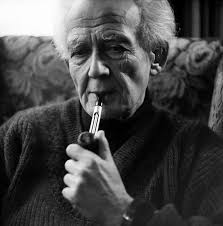THE ETHICS OF THE HISTORIAN IN THE LIGHT OF TRAUMATIC AND SENSITIVE ISSUES: a brief reflection
DOI:
https://doi.org/10.18764/2236-4099v14n35.2024.10Keywords:
Ethics, Case study, HistorianAbstract
The following brief reflection aims to think about the role of the historian and the ethical commitment of his craft. To this end, it is necessary to build a general panorama around historiographical practice itself, paraphrasing Certeau: what would a historian fabricate? And how does this practice relate to social responsibility? It is part of historical research to work directly with everything that is produced by human beings, allowing access to the understanding of the meanings of their past and present actions. Historical sources are fundamental in this process. One of the relevant approaches to analysis is the case study, in which we will give greater emphasis in this work. To theoretically support the discussions, the following will be used: Michel de Certeau, with the work "The Historiographical Operation" and Carlo Ginzburg with "Unus testis: the extermination of the Jews and the principle of reality".
Downloads
References
BECKER, Howard. Métodos de pesquisa em ciências sociais. Tradução: Marco Estevão e Renato Aguiar. São Paulo: Editora Hucitec, 1993.
CERTEAU, Michel. A Escrita da História. Rio de Janeiro: Forense-Universitária, 1982.
GINZBURG, Carlo. Unus testis: o extermínio dos judeus e o princípio da realidade. In: O Fio e os Rastros: Verdadeiro, Falso, Fictício. São Paulo: Companhia das Letras, 2007.
GUERREIRO, Antônio. Electra, 2020. Carlo Ginzburg: O historiador como detective. Disponível em: Carlo Ginzburg: O historiador como detective | Electra Magazine (fundacaoedp.pt). Acesso em 04 de julho, 2024.
NICOLAZZI, Fernando. Os historiadores e seus públicos: regimes historiográficos, recepção da história e história pública. Revista História Hoje, v. 8, nº 15, p. 203-222, 2019;
REIS, Maria Firmina dos. Úrsula. Florianópolis: Ed. Mulheres: Belo Horizonte: PUC Minas, 2004.
SCOTT, J. Gênero: uma categoria útil de análise histórica. Educação e realidade. Porto Alegre, 16(2), p. 5-22, jul./dez. 1990.
SILVA, José Nascimento. Maria Firmina: Fragmentos de uma vida. 1975.
Downloads
Published
How to Cite
Issue
Section
License
Copyright (c) 2024 Cadernos Zygmunt Bauman

This work is licensed under a Creative Commons Attribution 4.0 International License.
Direitos autorais Cadernos Zygmunt Bauman
Este obra está licenciado com uma Licença Creative Commons Atribuição 4.0 Internacional.








